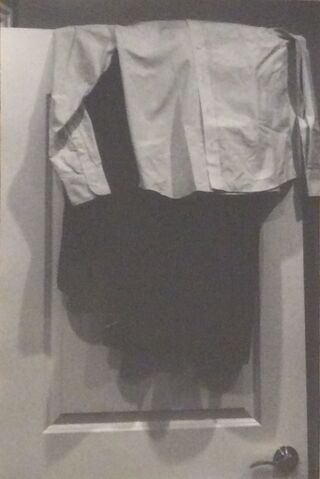
After months of lockdown, quarantine, and retracting from the lives we led, we now reside in the ruins of repetition. Our daily routines have been effaced, decisively so. A pivot from public to private existence is evident; we have gone from actively seeking the expansion of social connections to passively accepting a sequestered existence. A mediated life given over to the imagination, to the ideas we entertain, and the screens that entertain us. Thus pruned, we circulate the void.
Which forms of meaning remain after the public sphere was stigmatized with a contagious disease? For many, what remained was escape into an internet orientalism, where one becomes oneself again, but this time as a ghost. Making big gestures, trying to get famous or invisible; without the context of society, you are imprisoned in living out your own "truth." You can have the same friends, go to the same stores, continue the story of your life, but without ever seeing anyone. This spectral existence is a form of, if I may coin a term, avatar dandyism. Your avatar can look better through a plug-in, can sound better through auto-tune, can appear more together through a carefully curated self-presentation. But can this private existence offer any sense of return to the lives we led?
Sigmund Freud believed that the compulsion to repeat is at the core of the human experience. Repetition for Freud can mean memories that hide in the unconscious anticipating ways to resurface through dreams and other neurotic symptoms. It could be the return of the repressed, that which was shunted away, oozing back out of an open psychic wound. There is the repetition of the superego, where one builds an ego ideal and continues to try to match it, to please it. The superego is replete with authority figures: caregivers, parents, teachers, law enforcement officials. We repeat their morals insofar as their notions of how to live form the order of our mental lives. We repeat our past, figures skulk in the dark corners of the mind, everywhere you turn something that happened before lurks in the shadows.
At the same time, repetition is endowed with a feeling of mysterious significance. Memory is drenched with emotion; places and people, songs and street corners, the city you live in echoes with the footsteps of the past. Is the comfort of the past a form of nostalgia, that vivacity of memory, that wistful sense of the fullness of life? Repetition makes us feel we are doing something right, that we have clicked into a groove. It may be that this is simply a matter of the mere exposure effect that we like things better if we have been exposed to them before, regardless if we remember when. It could simply be that mammals prefer the familiar to the unknown.
Since an excess of meaning, of doing the same thing is a type of neuroticism, Freud urges us to instate a balance of meaning. That is, we must avoid a situation where there is too much meaning. This happens when we cannot stop remembering; when there is a trauma that haunts us by its incessant need to be repeated. The trauma of intense emotions of violence, degradation, and humiliation tear through consciousness of the present. At these times, there is too much repetition. With too much meaning, repeating thoughts seek a locus of insignificance in which they may be buried and thus negated.
For Freud, the drive to repeat has its source deep in the unconscious, in the fundamental principle of the death drive, Thanatos. The death drive is that which annuls meaning, it is the compulsion of matter to return from life to death, from animate to inert. From living time to silent eternity: Thanatos drives us away from meaning and towards nothingness.
In his 1983 book, The Ruins of Kasch, Roberto Calasso argues that Freud’s notion of the compulsion to repeat stems from terror in the face of the nonhuman origins of meaning. He claims this terror is the syndrome of Western history, namely, the “need to wrest an order from nature but at the same time agree that this order, as a variant of the compulsion to repeat, should be only a large vicious circle that ultimately leads to the annulment of itself” (p. 191). Culture is our response to this uncontrollable, nonhuman origin of meaning in Nature. With culture, humans may impose their will and ability to name and establish meaning through the artifice of convention (p. 192). It is the imagination that plays in this space between the terror of the negation of meaning and the neurotic compulsion to repeat.
This is the art of human coping: We derive pleasure — extravagant forms of filigreed pleasure — from the play of meaning. Whether it be in a work of art, reading an essay, or being enthralled by a performance, the varied ways humans communicate meaning is through the ingenious creative repetition and recombination of elements with which we are already familiar. This play of same and different encapsulates the almost infinite range of our pleasures. Our daily routines furnish a sense of play insofar as they include tiny modifications and substitutions which we come to relish. During the quarantine, we have fallen upon new habits, which we watch quickly become repetitive and then realize how a little bit of difference makes it no longer the same.
According to Roberto Calasso, “order is a kind of compulsion to repeat.” This rings true as the changes we have experienced during the pandemic seem to have shorn us of the order we maintained through routines. For many, the compulsion to return to normalcy is a need for repetition, the pleasant, canny repetition of the good old days.
Freud’s notion of the uncanny, the "unhomely," takes us further into this psychological pit. In his essay from 1919 — the ancestor of our strange year, 2020, Freud suggests some repetitions are more disquieting than others. Specifically, a plain repetition can be comforting, and a repetition with plenty of discernible changes is novel and thus exciting. The uncanny on the other hand is created by repetition with very slight particular changes, for example at the personal level we experience horror at the aspect of a döppelganger, such as the underworld twins in the movie Us. Nightmares are replete with such uncanny repetitions. Frankenstein as the product of tampering with nature, and zombie apocalypse scenarios are large-scale situations that engender great terror. In many ways, the world we now inhabit is an uncanny repetition of the world we lived in a year ago. Our public spaces are empty, faces are covered by masks, and confusion is rampant. The pandemic is indeed a portal: out of old routines, into new ones, out of one tired reality and into another.
References
Calasso, Roberto (1983). The Ruins of Kasch. translators, William Weaver & Stephen Sartarelli. Cambridge: The Belknap Press.
Freud, S. (1919). The Uncanny. First published in Imago, Bd. V., 1919; reprinted in Sammlung, Fünfte Folge. [Translated by Alix Strachey.]




